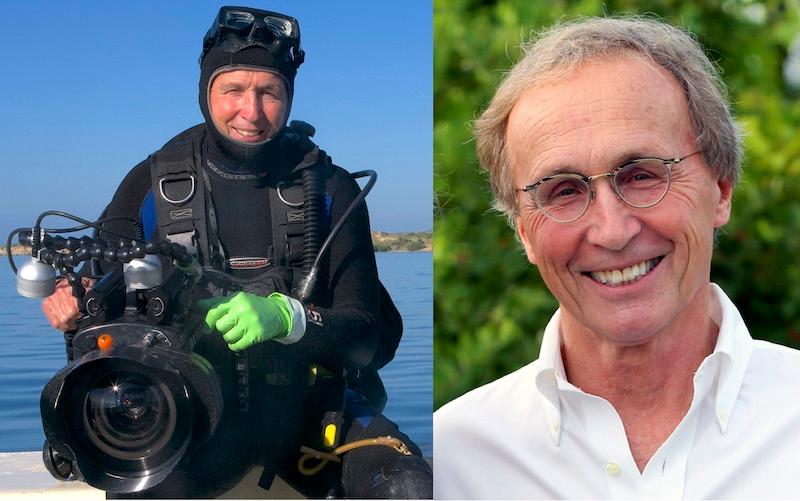Roger Hanlon - Marine Imaging Workshop 2019
Roger T. Hanlon
rhanlon@mbl.edu
http://www.mbl.edu/bell/current-faculty/hanlon/

Roger Hanlon uses imagery (video, still photography, HyperSpectral Imaging, microscopy) to study color patterning and behavior, with special emphasis on the most advanced and sophisticated system of rapid adaptive coloration known: the cephalopods (octopus, squid and cuttlefish) that instantaneously change their skin patterns and complexion for a wide range of communication and camouflage.
He is currently Senior Scientist at the Marine Biological Laboratory, Woods Hole, Massachusetts and Professor of Ecology and Evolutionary Biology at Brown University. He was trained in marine sciences at Florida State University and University of Miami, and studied sensory biology as a NATO postdoctoral fellow at Cambridge University in England. He first worked as a tenured faculty at the Marine Biomedical Institute (U Texas Medical Branch) then moved to Woods Hole as Founding Director of the Marine Resources Center at MBL. He has hosted and mentored >30 graduate students and postdocs during his career, and has published 230 peer-reviewed scientific papers in scholarly journals.
Recently his laboratory has focused on a multidisciplinary effort to determine the anatomical mechanisms of skin color and pattern change, touching subjects as varied as visual perception, psychophysics, neuroscience, behavioral ecology, skin ultrastructure, spectrometry, image analyses, computer vision, and art. This research has focused on the elegant and sophisticated interactions of dermal chromatophores, iridophores and leucophores in the skin of squid and cuttlefish, with a view towards developing new classes of bio-inspired materials that change appearance. Active public outreach featuring these charismatic marine animals has been conducted recently with NOVA, BBC, Discovery, National Geographic, New York Times and TED 2019.